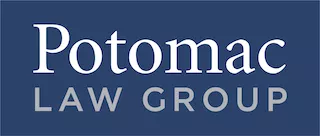This is the second installment in a multi-part series of client Alerts that breaks down the Infrastructure Investment and Jobs Act (HR 3684) (the "IIJA") into bite-sized pieces. Part II of the series focuses on the portions of the law supporting the electrification of transportation, an area of interest to many participants, including equipment manufacturers, utilities, construction contractors, fleet operators, transportation agencies, and community organizations. Multiple federal agencies administer these provisions, including the Department of Transportation (DOT), the Department of Energy (DOE) and the Environmental Protection Agency (EPA). This alert focuses on new areas of funding to help stakeholders to begin to prepare and plan for future opportunities. It also identifies upcoming policy decisions that could have long lasting impacts on this evolving industry that stakeholders may desire to monitor.
Funding Categories:
Electric Vehicle (EV) Charging and Fueling Infrastructure
In Spring 2021, the Biden-Harris Administration set the ambitious goal of building 500,000 new public EV chargers across the U.S. by 2030, and began redirecting existing sources of transportation funding to support electric transportation infrastructure. Building out a national network of publicly accessible electric vehicle chargers is a necessary component to facilitating long-distance EV travel thereby accelerating the adoption of electric vehicles in the United States. The IIJA dedicates $7.5 to support this initiative, which will flow through a new DOT grant program to be established within the first year of the law.
Half of the grant funding will support charging infrastructure located within the DOT's designated Alternative Fuel Corridors, which should be updated and redesignated within the first 180 days following enactment. The other half is reserved for community grants that will support development of facilities in rural areas, low- and moderate-income neighborhoods, and communities with a limited private parking spaces or a high concentration of multiunit dwellings. Due to the source of the funding, even those community grant projects located in rural or urban locations will be treated as if the project were located on an a Federal-aid highway. Grants issued under the community grant program are capped at $15 million, but there is no cap on the size of the individual grants within the Alternative Fuel Corridors.
The law encourages the formation of public-private partnerships. Eligible recipients include states, metropolitan planning organizations, local governments, transportation districts, tribes, and U.S. territories, acting alone or collectively. Grant funding is to be used to contract with a private entity for acquisition and installation of the publicly accessible facilities that are directly related to the charging or fueling of a vehicle, although a portion of the funds may be used to subsidize operating assistance for the first 5 years of operations. Parties interested in such partnerships will want to monitor not only the development of the grant program by DOT, but also notices from state and local government agencies that may be interested in building such partnerships before submitting applications for grant funding.
Standardization and Standards Development
To maximize access to this new network of public charging stations, federal funds may only be used for electric vehicle charging stations using non-proprietary charging connectors and open access to payment methods that are available to all members of the public. The law directs the Secretary of Transportation, in coordination with the Secretary of Energy and in consultation with relevant stakeholders, to act within 180 days to develop minimum standards and requirements across a range of topics to be applied across initiatives funded under the IIJA, including:
- the installation, operation, or maintenance by qualified technicians of electric vehicle charging infrastructure;
- the interoperability of electric vehicle charging infrastructure;
- traffic control devices and on-premises signage;
- project data, including the format and schedule for the submission of such data;
- network connectivity of electric vehicle charging infrastructure; and
- information on publicly available electric vehicle charging infrastructure locations, pricing, real-time availability, and accessibility through mapping applications:
These policy decisions could significantly impact the direction of the industry. Interested parties will want to monitor DOT and DOE announcements and engage as appropriate.
Surface Transportation Block Grant Program
The IIJA expands eligibility under the existing Department of Transportation Surface Transportation Block Grant Program to include the installation of electric vehicle charging infrastructure and vehicle-to-grid infrastructure.
Advanced Battery Processing, Manufacturing and Recycling Grant Programs
DOE is charged with establishing two new grant programs before May 14, 2022, to fund demonstration projects for (1) the manufacturing and recycling of advanced battery components and batteries, and (2) the processing of materials from advanced electric battery cells. The total amount of funds authorized for both programs is $6 billion over a five year period of FY 2022-2026, evenly divided between the two programs. Priority will be given to domestic located facilities and owners, and to projects that promote jobs in low and moderate income communities, partner with Indian tribes and promote reductions in greenhouse gas emissions and efficiencies in manufacturing and supply chains.
The IIJA also allocated $200 million for a DOE competitive grant program support research, development and demonstration projects relating to recycling and second life applications for electric vehicle batteries.
Electric School Buses and Ferries
The law allocates $5 billion over 5 years to the EPA to fund alternative fuel and zero-emission school busses. The EPA has the discretion to determine whether to structure the funding through competitive grants or rebates.
The DOT is allocated $250 million to establish a pilot grant program to support the deployment of electric or low-emitting ferries and the electrification of or other reduction of emissions from existing ferries.
Carbon Reduction Program
The DOT is charged with establishing a new formula grant program to invest in a range of projects that support a reduction in transportation emissions. The program encompasses many initiatives, including the acquisition, installation, or operation of publicly accessible electric vehicle charging infrastructure, the purchase or lease of zero-emission construction equipment and vehicles (including supporting facilities), diesel engine retrofits and port electrification.
Tax Credits
Expansion and extension of electric vehicle tax incentives were not included in the final text of the IIJA. However, the Build Back Better Act (BBB Act), which has been approved by the House, includes $550 billion in climate-related funding, including investment in "alternative vehicles and greening the fleet." This legislation will be considered by the Senate, and although changes to the bill are expected, the incentives for clean energy have broad support in Congress and are likely to be included in the final version of the legislation.
The House bill includes the following tax provisions: (1) a refundable new qualified plug-in electric drive motor vehicle credit for individuals; (2) a credit for previously owned qualified plug-in electric drive motor vehicles; (3) a credit for qualified commercial electric vehicles; (4) an extension of the credit for qualified fuel cell motor vehicles; (5) an extension of the alternative fuel refueling property credit; and (6) a credit for certain new electric bicycles.
Who to Watch: Multiple federal agencies have responsibility for their respective sectors' roles under the IIJA. Stakeholders will want to monitor DOT, DOE and EPA, as appropriate, according to the programs of interest. Parties interested in participating in a public-private partnership to build out the electric vehicle charging and fueling infrastructure will want to engage with state and local governments, metropolitan planning organizations, transportation districts, tribes and US territories as they are gathering and building their grant application teams.
When: Many of the initiatives face a legislative deadline of 180 days from enactment. Following President Biden's signature on November 15, 2021, the 180 day deadlines will arise on May 14, 2022. Some new programs will take longer to design and administer, and the DOT has up to a year to establish the new grant program for electric and other alternative fueling infrastructure.
This alert is not a comprehensive listing of all programs relating to electric transportation in the IIJA. PLG attorneys will be keeping a close eye on IIJA implementation and other relevant aspects of the program (for example Buy America requirements, certifications, and tax implications), as well as movement of the BBB Act through Congress. We would be happy to assist our clients with needs related to the IIJA and its opportunities.
Note: This publication is distributed with the understanding that the author, publisher and distributor of this publication and/or any linked publication are not rendering legal, accounting, or other professional advice or opinions on specific facts or matters and, accordingly, assume no liability whatsoever in connection with its use. Pursuant to applicable rules of professional conduct, portions of this publication may constitute Attorney Advertising.
The content of this article is intended to provide a general guide to the subject matter. Specialist advice should be sought about your specific circumstances.


